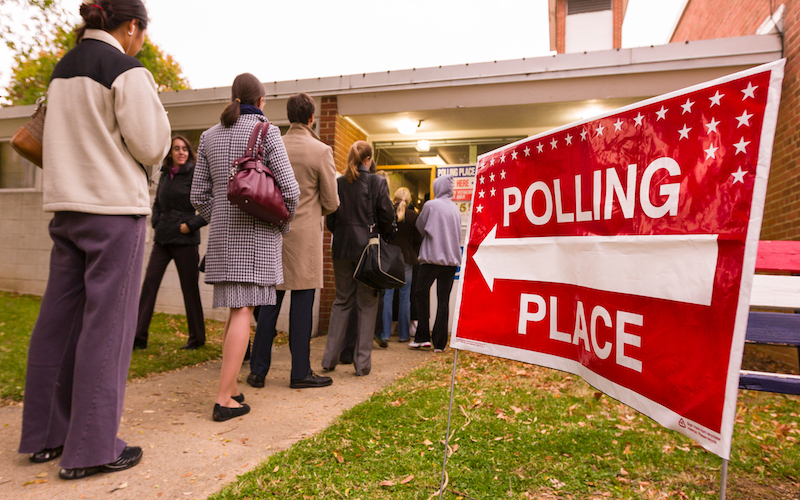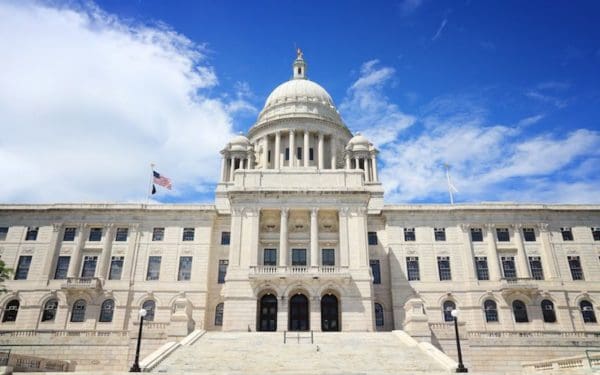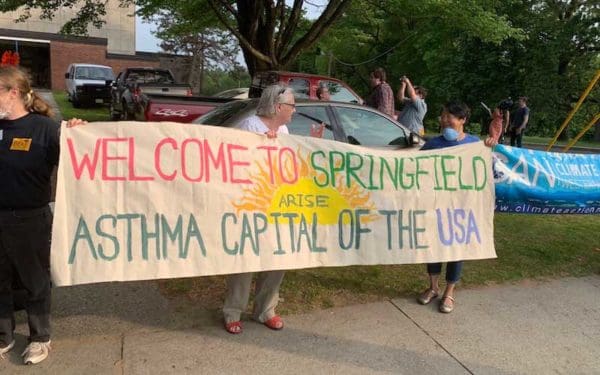
Long lines to vote are not always a sign of a strong democracy. Photo: Rob Crandall via Shutterstock
With less than a week until the election, I’m writing today to talk to you about an issue that is close to my heart and more relevant than ever: voter suppression.
In 2018, I served as a volunteer poll watcher for the Georgia gubernatorial election and witnessed first-hand what voter suppression looks like. The polling station I covered in Atlanta, which serves a Black neighborhood and several Historically Black Colleges and Universities, was plagued with problems – from malfunctioning equipment and a shortage of provisional ballots to difficulties reconciling the vote totals at the end of the night.
Throughout the day and into the night, I watched college students, senior citizens, and parents with young children stand patiently in a line that stretched through the building and out to the parking lot, waiting in the rain for hours to cast their vote. Through it all, the refrain I heard was this: “As long as my vote counts.”
Democracy in America Is Not Guaranteed
Our nation’s long journey to building a truly inclusive democracy is far from over. In spite of hard-won fights that span more than a century, from the ratification of the fifteenth amendment in 1870 to the Voting Rights Act of 1965 and beyond, voter suppression remains a real and enduring challenge in this country.
In 2013, the Supreme Court decision in Shelby v. Holder struck a major blow to voting rights. This decision invalidated key portions of the Voting Rights Act, eliminating federal oversight of elections in areas where racial discrimination in voting had occurred. As a result of this decision, many states and localities have now adopted laws and practices that make it more difficult to vote. Exact match systems, voter ID requirements, “use it or lose it” laws, purging of the rolls, poll station closures, and chronic under-funding for voting equipment and training have all contributed to suppressing the vote, particularly among Black and Latinx voters.
Reduced federal oversight has also increased the likelihood of voter intimidation at the polls, especially in communities of color.
And last, but certainly not least, the ongoing uncertainty around mail-in and absentee ballots in many states has further compounded the challenges to conducting a free and fair election this year.
How to Protect Democracy in Your Community
Today, our ability to vote safely – and to know that our votes will be counted – is under increasing threat. John Lewis said it best: “Democracy is not a state. It is an act.”
So, what can you do? Here are a few suggestions:
- Watch All In: The Fight for Democracy
- Sign up to protect the vote
- Become a poll worker
Most importantly, make a plan to vote – and ask your friends and family to do the same. (And, if you’ve already voted, thank you!)



